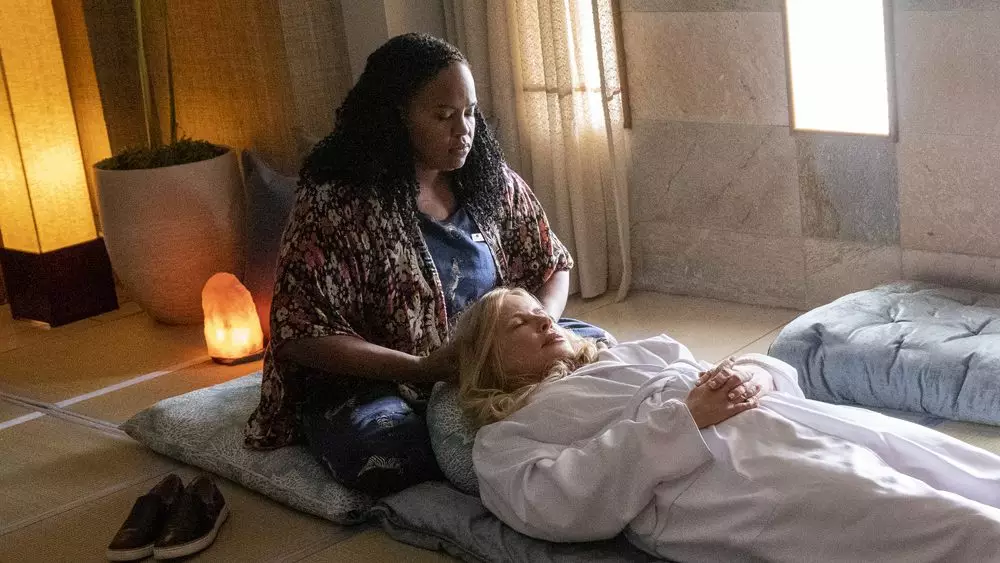Natasha Rothwell is set to make waves once more as she returns to HBO’s acclaimed anthology series, *The White Lotus*, for its third season, but this time, she’s not just returning as an actress. With the premiere of her new comedy series, *How to Die Alone*, on Hulu, Rothwell is demonstrating a remarkable evolution in her career, one that transcends her earlier roles. The character of Belinda Lindsey, her former role as the spa manager in *The White Lotus*, served as a catalyst for her current path, leading Rothwell to strive for authenticity and depth in her performances.
In a world where stereotypes often cage actors into specific roles, Rothwell’s experience has mirrored a broader struggle faced by many in the industry. She articulates the importance of embracing the complexity of human emotions, emphasizing that people are inherently multifaceted. “We are nuanced, complicated people,” she stated, advocating for a portrayal that recognizes the full spectrum of our human experiences. The journey Rothwell undertook in establishing Belinda’s character on *The White Lotus* demonstrated her capability to depict serious themes, challenging the industry norms that often box actresses into predefined roles based solely on previous performances.
Rothwell’s need for authenticity stems from her broader artistic vision. In her earlier roles, particularly in *Insecure*, she felt constrained by the labels affixed to characters, limiting her growth as an actress and a creator. “Before, it was just like, ‘She’s Kelly from *Insecure*, she can’t be serious,’” she recounted, highlighting how pervasive such typecasting can be in Hollywood. However, through her experience with *The White Lotus*, Rothwell was afforded the space to explore and express vulnerability and seriousness without apology.
The evolution past typecasting is crucial for artists who thrive on the richness of diverse emotional portrayals. Rothwell has taken strides not just to portray a character authentically, but to provide representation for those who often see themselves excluded from the nuanced depths of storytelling. The mission to honor complexity on-screen is clear; Rothwell wishes for her audience, particularly viewers who share her identity, to recognize that they too can embrace layers of emotion and backstory.
*How to Die Alone* provides a fresh canvas for Rothwell’s sense of humor and creativity. In this Hulu venture, she plays Mel, a relatable depiction of a woman whose near-death experience propels her to reevaluate her life choices. The clear stakes combined with Rothwell’s comedic prowess offer a fresh take on the ‘awakening’ narrative, encapsulating the struggle of living authentically. Rothwell’s past experiences writing for *Insecure* and *Saturday Night Live* undoubtedly contribute to her success in crafting this engaging storyline, as she combines humor with meaningful character development.
Moreover, as she reflects on her past roles, Rothwell acknowledges the influence of surrounding talent, notably that of Issa Rae. Watching Rae’s journey allowed Rothwell to glean valuable insights into the dynamics of success within the industry. “Finding out what I wanted to do with this opportunity in terms of populating the writers’ room and department heads on set was [great],” she remarked, underscoring her commitment to not only tell stories but to empower others in her creative team.
As *The White Lotus* moves forward to a Thailand-set third season, Rothwell is eager to don her character’s former skin once again. The comparison she draws between returning to a character and “putting on a wet bathing suit” speaks to the initial discomfort juxtaposed with the familiarity that ultimately feels rewarding. Rothwell’s excitement is palpable, reflecting a desire not just to return, but to evolve alongside her character – a testament to her dedication to authenticity and narrative depth.
Ultimately, Rothwell’s multifaceted journey, marked by professional growth and personal reflection, reinforces the importance of representation in storytelling. By crafting characters that mirror the real emotional predicaments of life, she creates space for viewers to connect, empathize, and, perhaps, find their own authenticity in the narratives she presents. As audiences anticipate her return in *The White Lotus* and the premiere of *How to Die Alone*, one thing is certain: Natasha Rothwell is not merely an actress; she is a trailblazer weaving together the threads of complex, genuine experiences.

